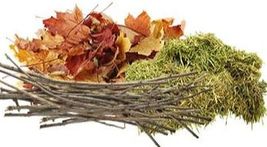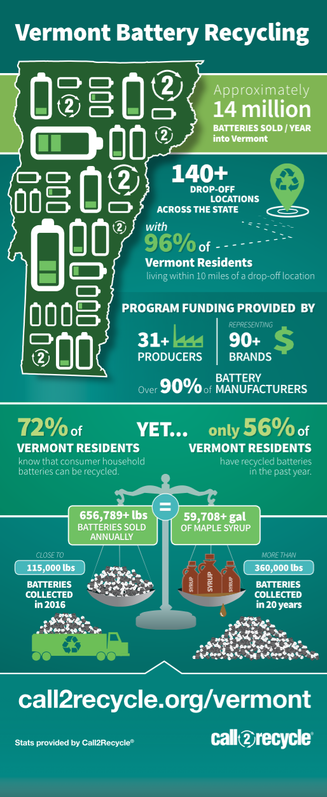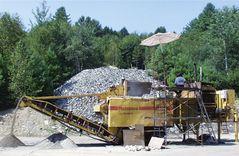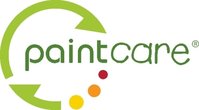Latest District News
What happens to the glass you bring to the transfer station?
Clean Wood, Leaf, and Yard Debris Banned from the Landfill (as of July 1, 2016)

What is leaf and yard debris? It's all of the following, and as of July 1, 2016, it is banned from the landfill.
- Leaves
- Grass clippings
- Weeds
- Garden debris
- House plants
- Twigs and brush less than 1 inch in diameter
Household Hazardous Waste Do-Take and Don't Take List:
What to bring to the Household Hazardous Waste (HHW) Depot? Products with labels that say:
CAUSTIC, CAUTION, CORROSIVE, DANGER, FLAMMABLE, POISON, TOXIC, or WARNING**
From the Garden/Yard/House:
insecticides, herbicides, fungicides, chemical fertilizers, rodent killer, metal polish, pool chemicals, photography chemicals, flea control products, no-pest strips, drain and toilet cleaners, over cleaner, mothballs, lighter fluid, bathroom cleaners, rug and upholstery cleaners, spot removers, bleach, dry cleaning fluids, chemistry sets, arts and crafts supplies, mercury thermometers, and mercury thermostats
From the Garage/Workbench:
antifreeze, brake fluid, car wax and polishes, gasoline, kerosene, transmission fluid, engine and radiator flusher, engine degreaser, carburetor cleaner, gas treatments, plastic fuel filters, rust proofer, wood preservatives, sealants, solvents, liquid creosote, cesspool cleaners, roofing tar, driveway sealer, adhesives, muriatic acid, varnish, paint thinner, wood strippers and stains, lead-, oil-, and water-based (latex) paints. (Properly-drained metal fuel filters can be recycled with scrap metal at your transfer station.)
**DO NOT bring used oil, batteries, asbestos, radioactive material, empty containers, fireworks, tires, medical waste, dry creosote, or ammunition.
Fluorescent tubes and compact fluorescent bulbs go to your transfer station or local participating hardware store.
Please note: Keep products in their original containers. Do not mix products. Never smoke near hazardous materials. Do not leave your vehicle when you arrive on site; you will be assisted by trained staff. The District has the right to refuse any material based upon its nature.
Please call 802-674-9235 or e-mail [email protected] with questions and to make an appointment.
CAUSTIC, CAUTION, CORROSIVE, DANGER, FLAMMABLE, POISON, TOXIC, or WARNING**
From the Garden/Yard/House:
insecticides, herbicides, fungicides, chemical fertilizers, rodent killer, metal polish, pool chemicals, photography chemicals, flea control products, no-pest strips, drain and toilet cleaners, over cleaner, mothballs, lighter fluid, bathroom cleaners, rug and upholstery cleaners, spot removers, bleach, dry cleaning fluids, chemistry sets, arts and crafts supplies, mercury thermometers, and mercury thermostats
From the Garage/Workbench:
antifreeze, brake fluid, car wax and polishes, gasoline, kerosene, transmission fluid, engine and radiator flusher, engine degreaser, carburetor cleaner, gas treatments, plastic fuel filters, rust proofer, wood preservatives, sealants, solvents, liquid creosote, cesspool cleaners, roofing tar, driveway sealer, adhesives, muriatic acid, varnish, paint thinner, wood strippers and stains, lead-, oil-, and water-based (latex) paints. (Properly-drained metal fuel filters can be recycled with scrap metal at your transfer station.)
**DO NOT bring used oil, batteries, asbestos, radioactive material, empty containers, fireworks, tires, medical waste, dry creosote, or ammunition.
Fluorescent tubes and compact fluorescent bulbs go to your transfer station or local participating hardware store.
Please note: Keep products in their original containers. Do not mix products. Never smoke near hazardous materials. Do not leave your vehicle when you arrive on site; you will be assisted by trained staff. The District has the right to refuse any material based upon its nature.
Please call 802-674-9235 or e-mail [email protected] with questions and to make an appointment.
Battery Recycling Update: Save Our Landfill!

Have you been throwing the used batteries from your remote controls, flashlights or toys into the trash? Stop! Until recently that was acceptable in Vermont. However, since Jan. 1, 2016, the State has added single-use batteries (AA, AAA, C, D, 9v, hearing aid, coin cell, tool, and button) to the list of accepted recyclables. What does this change mean for you as a resident? You can now recycle all household batteries at your transfer station. This includes rechargeable batteries which have been accepted since the mid-1990s.
Expanding battery recycling to include single-use batteries is a direct result of a product stewardship law the Vermont legislature passed in May 2014. The law (H. 695) makes Vermont the first US state to require single-use battery manufacturers that sell batteries in the state to pay for their collection and recycling. Manufacturers have voluntarily recycled rechargeable batteries since 1994. Under the program, battery recycling is free of charge for residents.
Since the law went into effect, the District has seen a jump in its single-use battery collections. The highest collection rate goes to the largest transfer station, Springfield, with a threefold increase in collections over all of 2015. Rechargeables have also seen an uptick.
Residents who visit the Springfield station will see a custom-built battery shed with separate compartments for different battery types. Dan Farrar, the former transfer station manager, built the shed several years ago when local residents became frustrated by the lack of recycling for single-use batteries. “Intuitively people don’t feel good about throwing away batteries. They know there is value and materials should be reused,” said Mary O’Brien, recycling coordinator for the District.
In addition to transfer stations, Vermont residents can drop off their batteries at a Call2Recycle collection site; 96% of Vermonters have a site within 10 miles of their homes. Call2Recycle, Inc., North America’s largest consumer battery stewardship organization, is overseeing the state-wide program on behalf of manufacturers. Call2Recycle uses a network of recyclers who extract usable chemicals and metals for use in manufacturing new batteries, stainless steel and cement additives. You can find out more about what batteries are accepted and how they are recycled by clicking here.
Expanding battery recycling to include single-use batteries is a direct result of a product stewardship law the Vermont legislature passed in May 2014. The law (H. 695) makes Vermont the first US state to require single-use battery manufacturers that sell batteries in the state to pay for their collection and recycling. Manufacturers have voluntarily recycled rechargeable batteries since 1994. Under the program, battery recycling is free of charge for residents.
Since the law went into effect, the District has seen a jump in its single-use battery collections. The highest collection rate goes to the largest transfer station, Springfield, with a threefold increase in collections over all of 2015. Rechargeables have also seen an uptick.
Residents who visit the Springfield station will see a custom-built battery shed with separate compartments for different battery types. Dan Farrar, the former transfer station manager, built the shed several years ago when local residents became frustrated by the lack of recycling for single-use batteries. “Intuitively people don’t feel good about throwing away batteries. They know there is value and materials should be reused,” said Mary O’Brien, recycling coordinator for the District.
In addition to transfer stations, Vermont residents can drop off their batteries at a Call2Recycle collection site; 96% of Vermonters have a site within 10 miles of their homes. Call2Recycle, Inc., North America’s largest consumer battery stewardship organization, is overseeing the state-wide program on behalf of manufacturers. Call2Recycle uses a network of recyclers who extract usable chemicals and metals for use in manufacturing new batteries, stainless steel and cement additives. You can find out more about what batteries are accepted and how they are recycled by clicking here.
Vermont's Universal Recycling Law:
Vermont has solid waste legislation that focuses on recyclables and organics. Act 148 Universal Recycling will lead to more consistent services throughout the state. To read more about this law, click here. If you would like to look at and/or use the new universal recycling symbols for recycling, food, and trash, click here. Download the Universal Recycling timeline and/or a summary of the new law.
Vermont's New Paint Law:
|
The paint stewardship law requires the paint industry to be responsible for collecting and managing leftover architectural paint in Vermont, reducing the role of government and taxpayers. The cost of the program is paid by manufacturers who sell paint in the state; a fee is included in the price of paint sold in Vermont. The program is administered by a paint stewardship organization, PaintCare. Click on www.paintcare.org for a list of what products are accepted and what are not.
In our District, latex and oil-based paint are accepted at the annual household hazardous waste collections. Several retailers have also signed up to be year-round collection locations: Bibens and Sherwin-Williams in Springfield, Aubuchon Hardware in Windsor and LaValley's in Ludlow. Bring labeled, non-rusty, non-leaking cans to the retailers; we'll take the rest at our household hazardous waste collections. |
Vermont's "E-Waste" Law:
There are two important parts to the Vermont's e-waste (used electronics) law which took effect in 2011. The first part is the landfill ban on many electronic devices as of January 1, 2011. The second is the FREE recycling of certain e-waste (computers, computer monitors, CRT-containing devices, printers, and TVs) as of July 1, 2011. For the details, click on the Department of Environmental Conservation's website. Vermont is the twenty-first state in the country to enact an e-waste law. The free program is open to Vermont residents, charities, school districts, and small businesses with up to ten employees. In our District, the Cavendish, Ludlow, Rockingham, Springfield, and Weathersfield transfer stations have registered as free collection sites.

